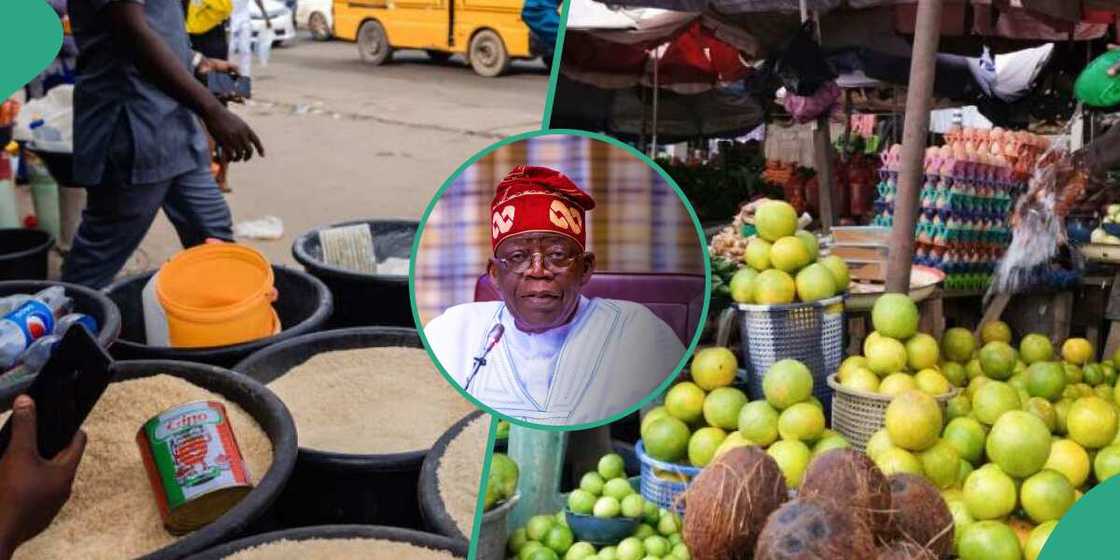Expert Offers Solutions As Kogi, Lagos Lead List of Nigeria’s 10 Most Expensive States To Live
- The ten most expensive states to live in in Nigeria based on the latest inflation figures have been revealed
- The figures from the National Bureau of Statistics latest report captures how more challenging life is becoming for Nigerians
- Kogi, Lagos, and Rivers State lead the list, having recorded the highest inflation rate in Nigeria
These are challenging times for Nigerian households, with inflation rates playing a critical role in determining the cost of living across the country.
The most recent Consumer Price Index by the National Bureau of Statistics (NBS) for November 2023 shows the inflation rate in Nigeria stands at 28.20%, the highest level in over 18 years.

Source: Getty Images
The NBS report also showed how inflation is felt differently across the country, with residents in 10 states being the worst hit.
States with the highest inflation
Based on the report, here are the states with inflation rates higher than the national average.
States | Inflation rate |
Kogi | 33.28% |
Lagos | 32.30% |
Rivers | 32.25% |
Oyo | 31.35% |
Akwa Ibom | 30.69% |
Bauchi | 30.30% |
Kwara | 30.16% |
Kaduna | 29.79% |
Ogun | 30.20% |
Ondo | 29.70% |
Expert speaks
Speaking on the inflation challenge, Ayoola Gilbert, a lead adviser, capital market advocacy educator, and analyst and entrepreneur, explained that the rising inflation threatens the economic well-being of the population but also poses a serious obstacle to the nation's overall development and progress.
He said:
"The cost of living for the average Nigerian has become exorbitant, placing immense strain on household budgets and eroding the purchasing power of the populace.
"One of the most immediate and tangible impacts of high inflation is felt in the realm of basic necessities.

Read also
N100bn funding: CBN shares important update to farmers, announces date for food prices to fall
"The prices of food items, including staples such as rice, maize, and cooking oil, have surged, making it increasingly challenging for families to put an adequate meal on the table.
"In addition, the cost of transportation, healthcare, and education has also witnessed a sharp rise, further squeezing the disposable income of Nigerians.
"As a consequence, many citizens are finding it difficult to afford a decent standard of living, and the most vulnerable segments of the population are being hit the hardest."
Gilbert further suggested how the Nigerian government can tackle the inflation challenge.
According to him, it requires a multi-faceted approach that encompasses both short-term relief measures and long-term structural reforms.
He added:
"In the immediate term, the government can consider targeted interventions such as food subsidies, cash transfers to vulnerable households, and the strengthening of social safety nets. These measures can provide much-needed relief to those most affected by the economic hardship, helping to cushion the impact of rising prices.
Furthermore, long-term solutions are essential to address the root causes of inflation and high living costs. Structural reforms aimed at enhancing agricultural productivity, improving infrastructure, and promoting investment in key sectors can help bolster the economy's resilience and reduce its susceptibility to supply chain disruptions."
Price of rice to crash
In related news, Legit.ng reported that in an analysis by the Economic Research Service of the United States Department of Agriculture (USDA), Nigeria is anticipated to emerge as a major global rice importer, projecting an import of approximately 2.1 million metric tons in 2024.
The report forecasts that the worldwide rice industry will reach around 52.85 million tons by 2024, with increased exports from Brazil and South Korea and heightened imports expected from Burkina Faso, Indonesia, and Nigeria.
The study also predicts a decline in rice production in Nigeria and seven other countries.
PAY ATTENTION: Donate to Legit Charity on Patreon. Your support matters!
Source: Legit.ng




